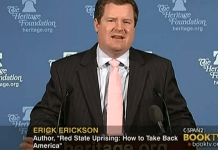In Abuja, Nigeria, Yunusa Bawa faces an uphill battle promoting the human papillomavirus (HPV) vaccine, essential for preventing cervical cancer, yet only a few parents in the rural Sabo community allow their daughters to receive it due to widespread fears that the vaccine might impair fertility.
As more African nations ramp up efforts to administer HPV vaccines, health workers like Bawa encounter persistent challenges, chiefly misinformation about the vaccine’s safety and efficacy. According to the World Health Organization (WHO), about 25% of the population in Africa harbors doubts about the HPV vaccine, mirroring concerns seen during early vaccine campaigns worldwide.
HPV, a common sexually transmitted virus, is responsible for cervical cancer, among other cancers and genital warts. In Africa, the disease claims about 190 women daily, accounting for 23% of global cervical cancer deaths and making it the leading cancer killer among women in the WHO Africa region. Despite this burden, HPV vaccination rates across the continent remain low.
While 28 of Africa’s 54 nations have introduced the vaccine into their immunization programs, only five have achieved the desired 90% coverage by 2030. In contrast, many European countries have already integrated HPV vaccination for both girls and boys.
Emily Kobayashi, from the vaccines alliance Gavi, emphasizes that vaccination is crucial in the fight against cervical cancer, especially in regions lacking access to screening facilities. However, Charles Shey Wiysonge of WHO Africa underscores that effective communication by trusted community figures is vital to dispel misinformation and encourage vaccine acceptance.
Vaccine hesitancy in Africa often stems from a history of distrust in government and is exacerbated by conspiracy theories spread through social media and religious leaders. In Zimbabwe, where cervical cancer is prevalent among women, Village Health Workers face challenges convincing communities, particularly those influenced by religious sects advocating against modern medicine.
Despite these hurdles, success stories emerge from countries like Ethiopia, where community leaders play a pivotal role in promoting vaccination. Rwanda stands out as the first African nation to achieve a 90% HPV vaccination coverage, thanks to robust awareness campaigns in schools and communities.
Mozambique and Tanzania have also made strides through school-based and mobile outreach programs, achieving high vaccination rates among girls. In Nigeria, a massive vaccination campaign targeting girls aged 9-14 has commenced with UNICEF’s support, aiming to administer nearly 15 million doses to combat cervical cancer effectively.
Dr. Aisha Mustapha, a gynecologist in Kaduna state, Nigeria, underscores the challenge of discussing HPV vaccination in conservative societies before girls become sexually active. Drawing from her experience with cervical cancer, Mustapha engages religious leaders and communities to educate and reassure them about the vaccine’s safety and importance.























